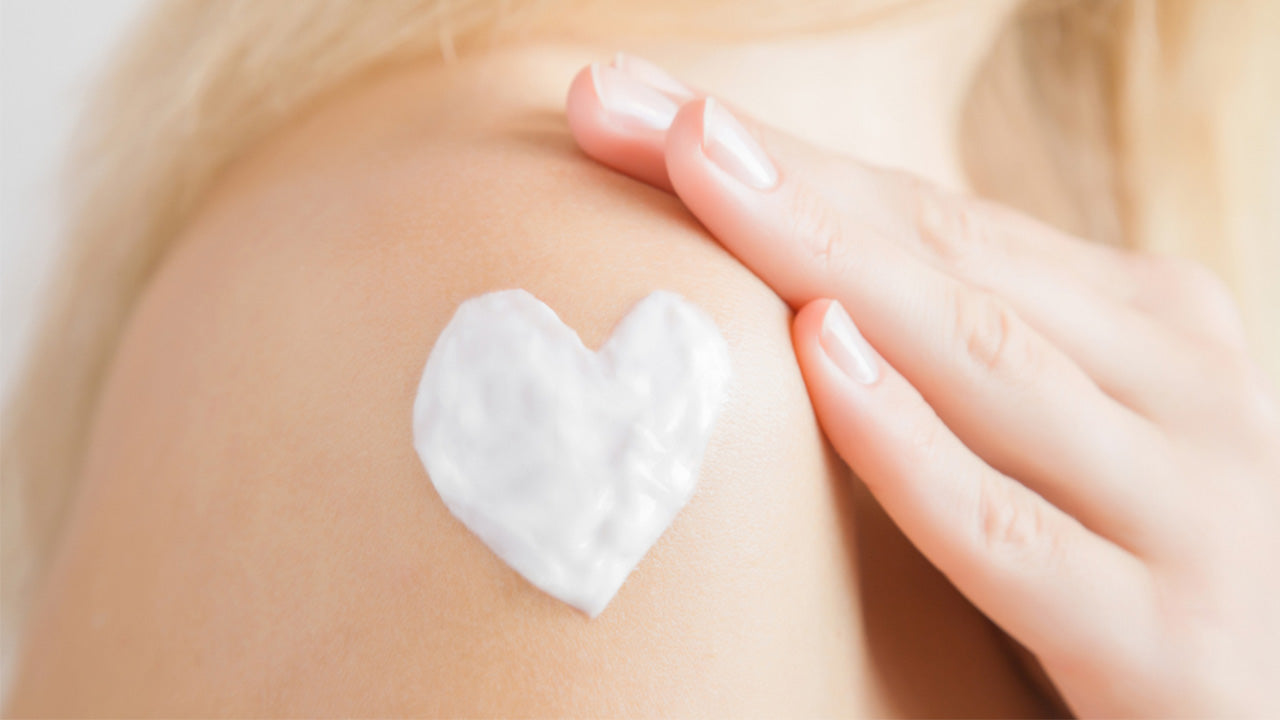Amino Acids for Skin Tightening
 By: by Amino Science
By: by Amino Science

When searching for an anti-aging advantage, many people will turn to cosmetic and skin care products for replenishment and support. Whether it's a moisturizer to cut down on redness or eye wrinkle cream meant to tighten the skin back up, the question is what substances actually work? When it comes to skin health, collagen production is key, and this article explains which amino acids for skin tightening and rejuvenation can help on the outside (from topical products) and within (for nutritional support).
What Is in Most Wrinkle Creams?
Let's quickly review which ingredients in topical creams are meant to reduce wrinkles and prevent or reverse the symptoms of aging on skin. The following ingredients have been shown to be effective in improving the appearance of wrinkles.
- Vitamin C: This antioxidant is known to protect your skin against sun damage when applied to the skin in a topical cream.
- Retinol: Vitamin A, or retinol, is an antioxidant compound that helps to fight against free radical damage and oxidative stress that breaks down your skin cells.
- Hydroxy acids: Alpha, beta, and poly hydroxy acids work as exfoliants to help remove dead skin cells and encourage new, smoother skin cell growth.
- Coenzyme Q10: This enzyme helps to protect against sun damage and reduce finer wrinkles around the eyes, making it a regular ingredient in eye wrinkle cream.
- Grape seed extract: Anti-inflammatory, antioxidant, and promoter of wound healing, grape seed extract is sometimes included in skin cream.
- Peptides: Peptides can help ameliorate stretch marks, encourage wound healing, and reduce wrinkles.
- Niacinamide: This form of B3 (niacin) acts as an antioxidant and promotes hydration and skin elasticity.
- Tea extracts: Black, oolong, and green tea extracts have plant compounds with anti-inflammatory and antioxidant properties. Green tea extracts specifically are commonly found in topical wrinkle creams.
Amino Acids for Skin Tightening
Now that you know what's usually in skin care cream, what about amino acids? These building blocks of protein in the body do more than just build muscle—they regulate your hormones and create necessary chemical substances that help keep you alive and healthy.
But what about aminos as components of skin care products? Do amino acids do better inside or outside the body, and are they effective in wrinkle creams? Here are the amino acids that have the greatest impact on your skin's health, and how they are best applied.
What Are Amino Acids?
There are 20 main amino acids in the human body, and they are divided into two categories: essential and nonessential. Essential amino acids are the 9 aminos you need to consume from outside sources, while the remaining 11 nonessential amino acids can be synthesized by your own body so long as it has the right ingredients.
- The essential amino acids include: Leucine, isoleucine, lysine, methionine, phenylalanine, histidine, threonine, tryptophan, and valine. They can be found in animal meat (poultry, seafood, beef), animal products (eggs, dairy), and in certain high-protein plant foods (soy products, legumes, beans, and nuts).
- The nonessential amino acids are: Alanine, arginine, asparagine, aspartic acid, cysteine, glutamic acid, glutamine, glycine, proline, serine, and tyrosine. Each of these aminos are made by the natural bodily functionings of most healthy adults.

Amino Acids for Collagen and Skin
Amino acids are a natural part of the skin, keeping it hydrated, supple, and alive. Amino acids are also what make up our collagen molecules, collagen being one of the most abundant proteins in our bodies. Collagen makes up the connective tissues in our bodies like our muscles and tendons, it's in our hair and our fingernails, and it's also about 70% of our skin's protein content. Collagen is a peptide because it has between 2 and 10 amino acids that make it up. Those amino acids are:
- Arginine: The “anti-aging” amino acid that can repair visible skin damage.
- Glycine: The simplest naturally occurring amino acid we have, glycine improves moisture retention, increases our collagen production, and promotes skin regeneration.
- Proline: The producer of cartilage and the collagen that aids wound healing.
- Hydroxyproline: Made from proline and lysine, this amino acid derivative makes up a good portion of fibrillar collagens.
The other amino acids that contribute to healthy skin are:
- Histidine: An antioxidant that can help soothe skin.
- Methionine: Works by eliminating the damaging substances that can harm our skin.
- Lysine: Helps firm skin’s surface by aiding its supportive structures.
- Leucine: Diminishes wrinkles and fine lines on the skin.
How Do Amino Acids Work for Skin?
One way amino acids improve skin health is by working with aquaporins, which transport water throughout the body and provide moisture for our skin. Aquaporins can also encourage hydration when applied to the skin's surface with a cosmetic product.
While some amino acids serve as antioxidants, others help the skin create its own antioxidant supply, including the antioxidant glutathione, which helps fortify the skin when applied topically, preventing the signs of aging that are caused by environmental damage.
Synthetic amino acids in skin care products have been shown to be just as effective and sometimes better than plant- or animal-derived aminos. Great news for those who are conscientious about leading a vegan lifestyle, because you can avoid animal products and still enjoy the benefits of amino acid skin-tightening support.
How Do Amino Acids Work with Other Ingredients?
The amino acids in collagen peptides and the amino acids that support skin health and hydration in other ways work in concert with one another. High-quality skin care products may contain additional ingredients that help facilitate that dance, and those substances include:
- Hyaluronic acid: A key molecule in aiding skin moisture, hyaluronic acid has a unique capacity for retaining water.
- Omega fatty acids: The omega-3 fatty acids in fish oil can help treat skin disorders with dermatological application.
- Glycerin: Glycerin has been shown to help improve skin hydration, especially when combined with hyaluronic acid.
- Ceramides: These are lipids that help shield the skin from damaging environmental influences, and can be used topically as a therapy for dermatoses.
- Other collagen-like peptides: Anti-aging collagen-like peptides have significant effects on reducing wrinkles.
Aging Gracefully and Scientifically
Amino acids help make up our skin, and consuming the correct proportions of essential amino acids can contribute to anti-aging, as can applying certain amino acids as skin treatments. Amino acid need is universal in humans, and amino acid skin-tightening treatments can work for all ages and all pigments of skin. To support the health of your skin and age gracefully, check out our Active Aging supplement.

Up to 25% off Amino
Shop NowTAGS: benefits
Join the Community
Comments (0)
Most Craveable Recipes




 833-264-6620
833-264-6620



















